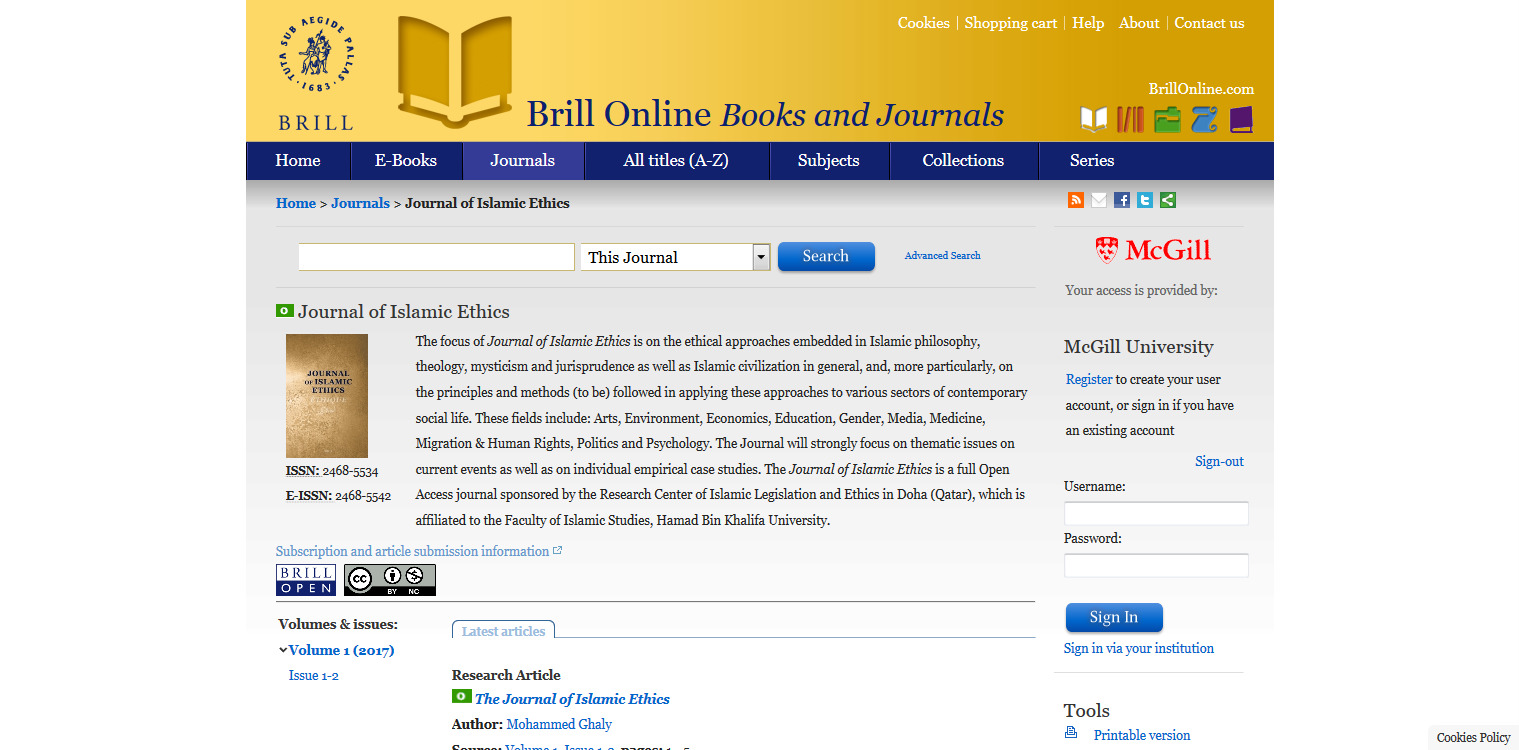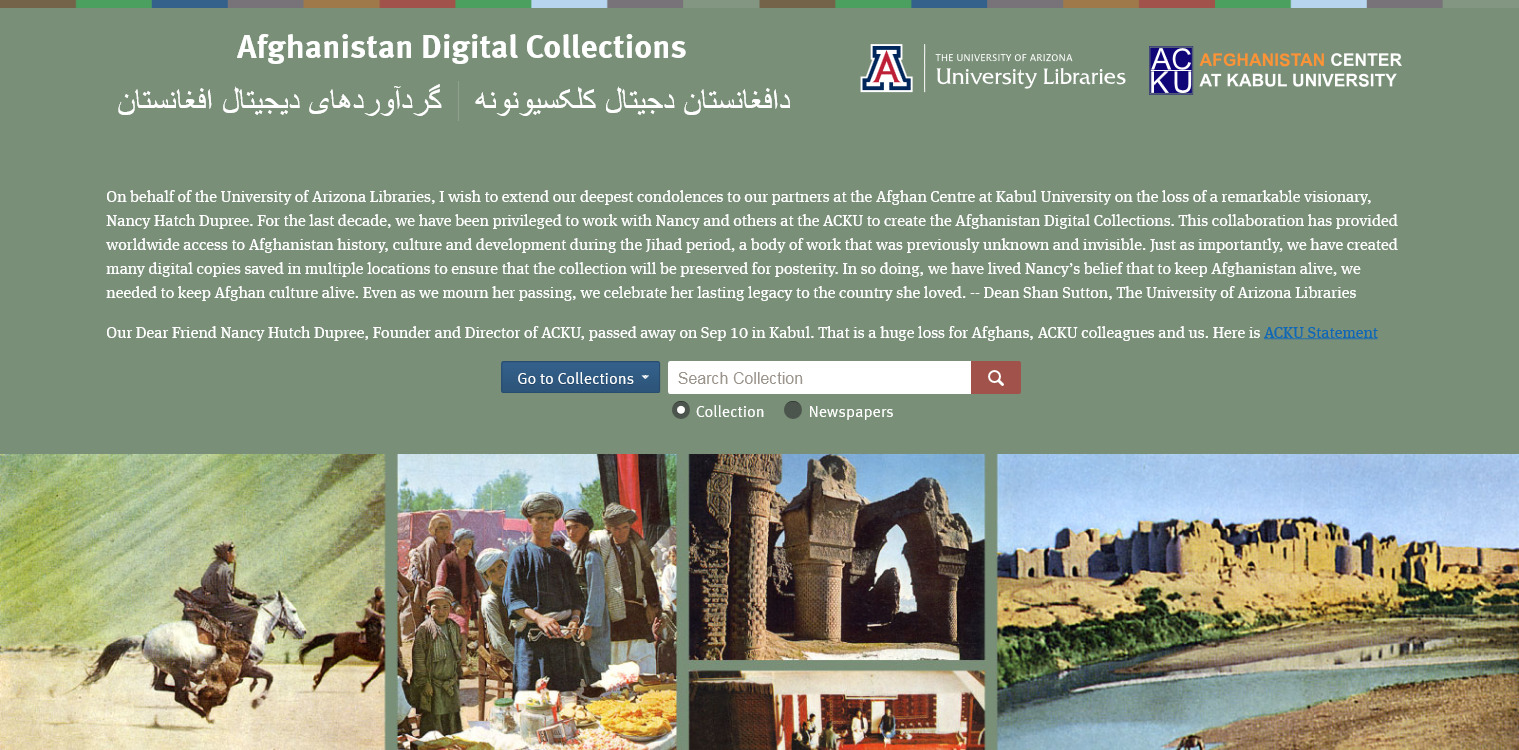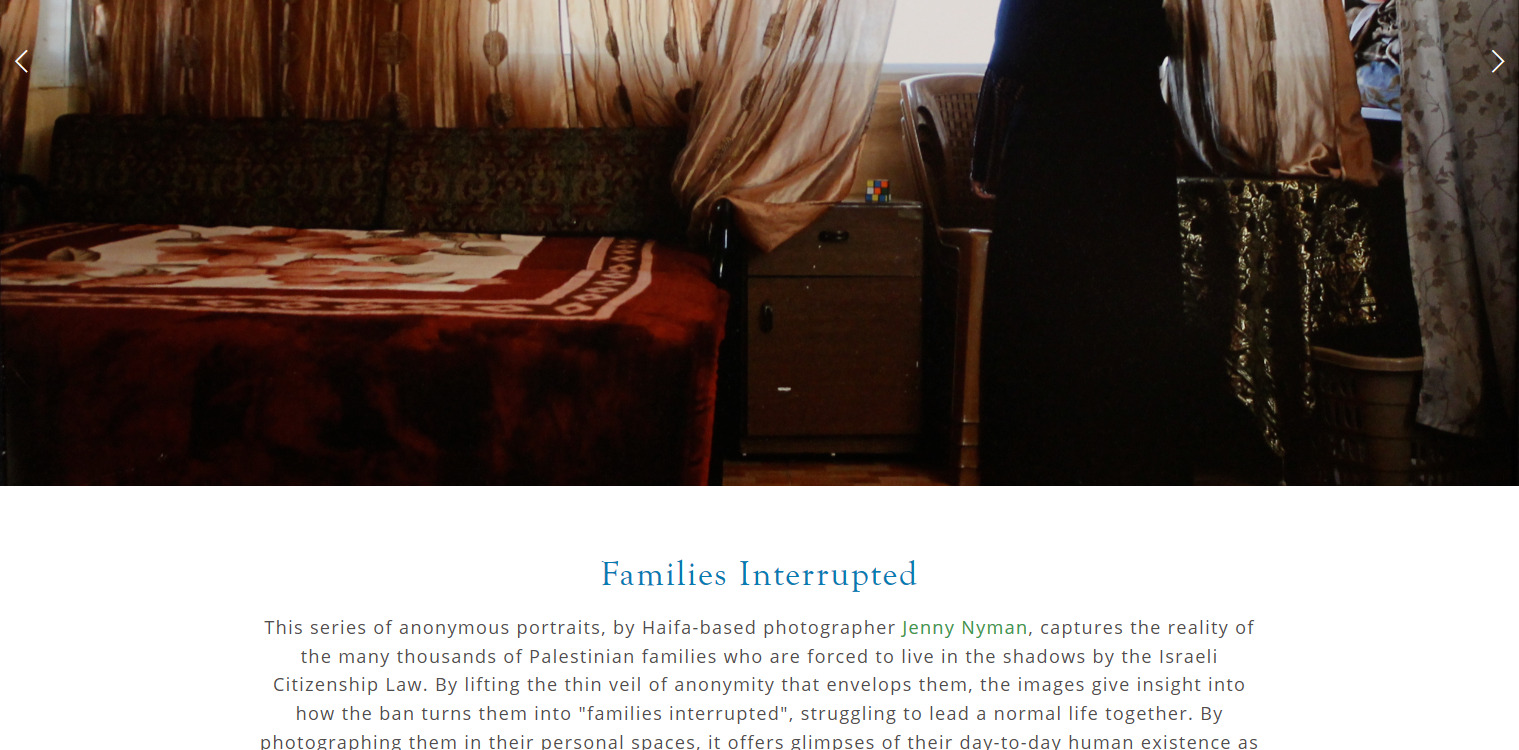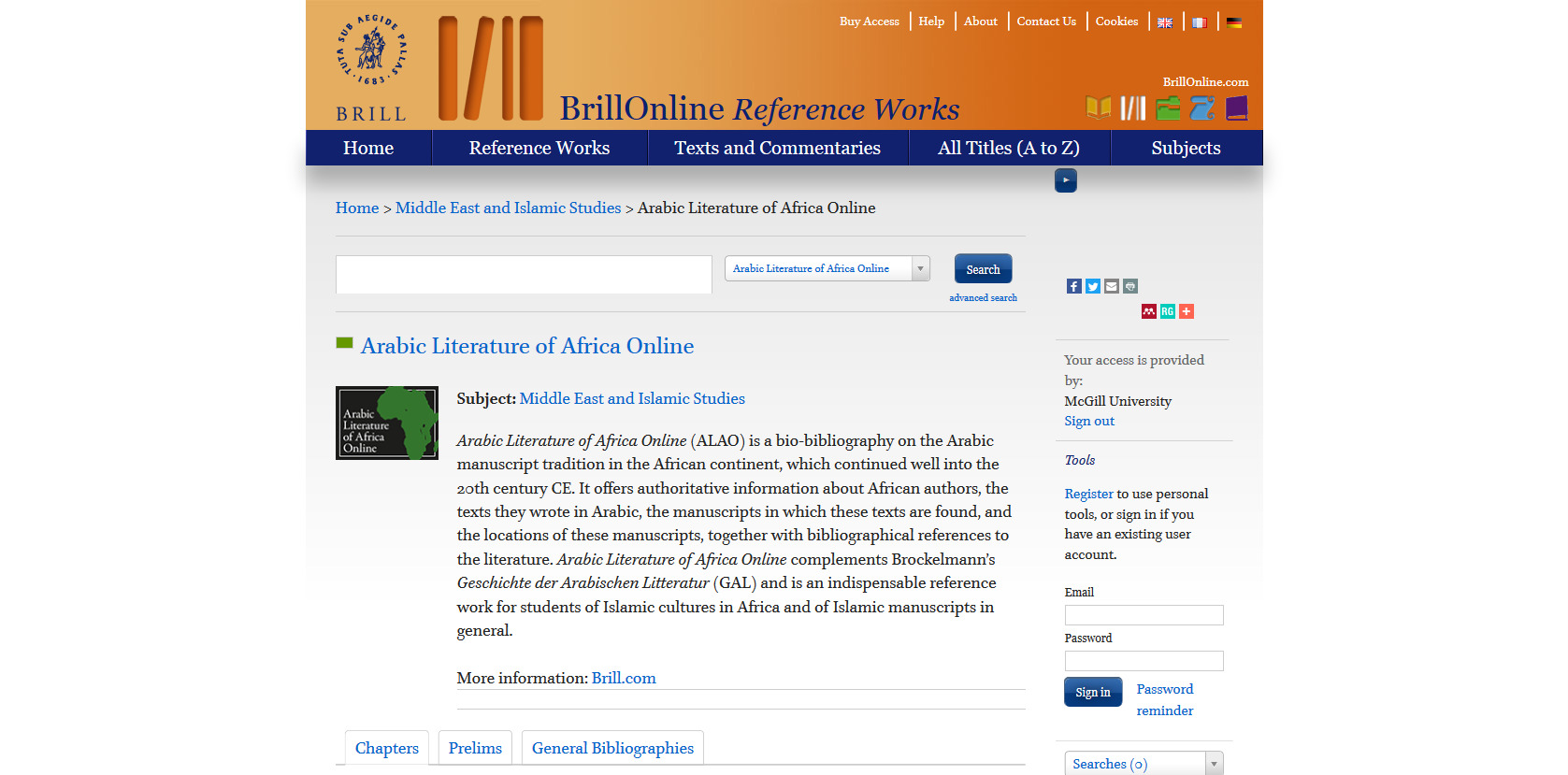The Journal of Islamic Ethics is a full Open Access online journal sponsored by the Research Center of Islamic Legislation and Ethics affiliated to the College of Islamic Studies, Hamad Bin Khalifa University, Doha, Qatar, and accessible from Brill Online Books and Journals platform.
 The Journal of Islamic Ethics focuses “on on the ethical approaches embedded in Islamic philosophy, theology, mysticism and jurisprudence as well as Islamic civilization in general, and, more particularly, on the principles and methods (to be) followed in applying these approaches to various sectors of contemporary social life” (…) such as: “Arts, Environment, Economics, Education, Gender, Media, Medicine, Migration & Human Rights, Politics and Psychology.”
The Journal of Islamic Ethics focuses “on on the ethical approaches embedded in Islamic philosophy, theology, mysticism and jurisprudence as well as Islamic civilization in general, and, more particularly, on the principles and methods (to be) followed in applying these approaches to various sectors of contemporary social life” (…) such as: “Arts, Environment, Economics, Education, Gender, Media, Medicine, Migration & Human Rights, Politics and Psychology.”




 “
“